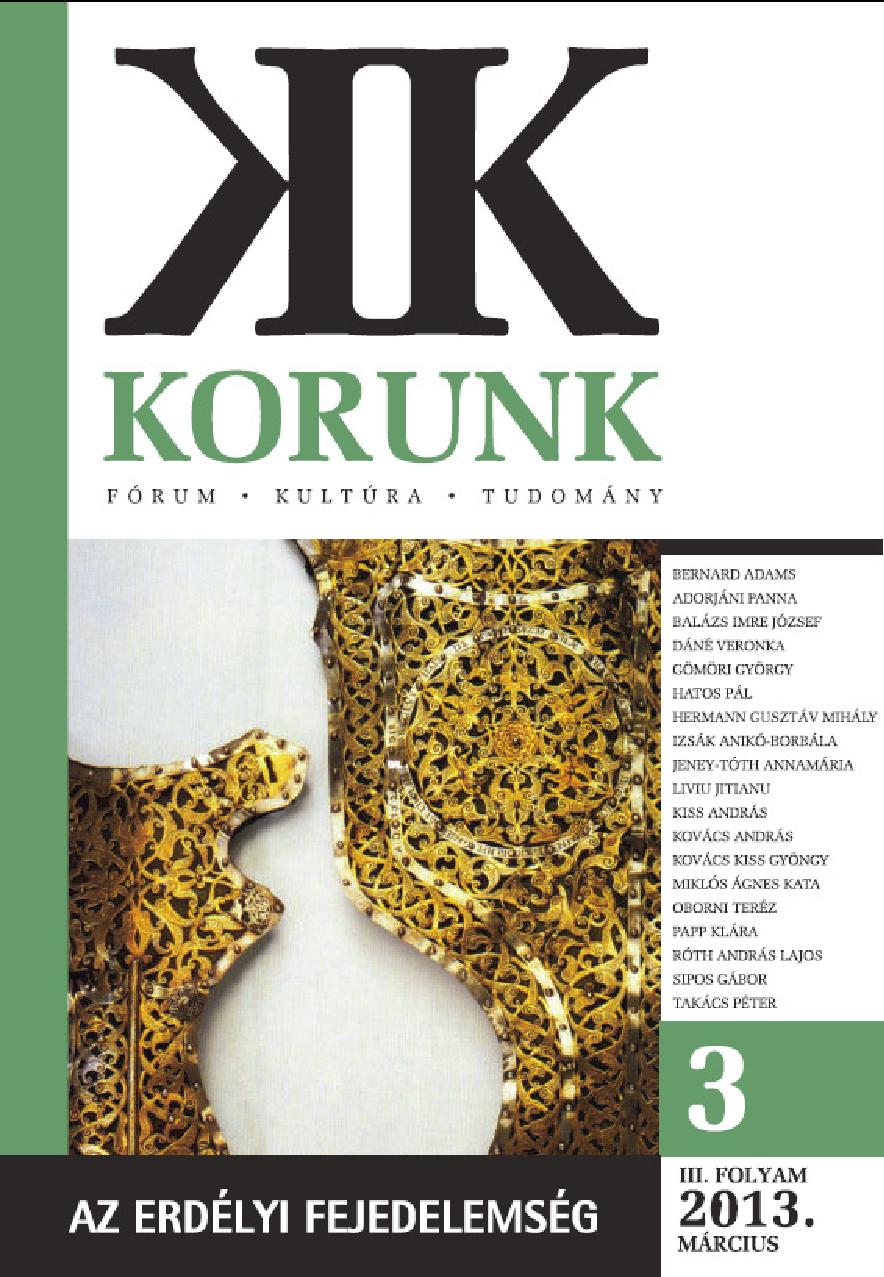Az Erdélyi Fejedelemség állama és politikai berendezkedése
The State and Political Regime of the Principality of Transylvania
Author(s): Teréz OborniSubject(s): History, Middle Ages
Published by: Korunk Baráti Társaság
Keywords: Principality of Transylvania; state; political regime
Summary/Abstract: In the 16th and 17th centuries the Principality of Transylvania, a vassal of the Ottoman Empire, functioned as a state with limited sovereignty. The Hungarian kings considered Transylvania to be an integral part of the Holy Crown of Hungary, and thus never relinquished their claim to it. This special relationship was acknowledged in the Treaty of Speyer, concluded in 1570 by János (John) Sigismund, son of János I Szapolyai, and king Maximilian I (r. 1564-76) of Habsburg. In this treaty, John Sigismund renounced his title of “elected king of Hungary” (electus rex Hungariae) and contented with the title of Prince of Transylvania and of the Adjacent Parts of Hungary (Princeps Transylvaniae et partium regni Hungariae eidem annexarum). He also acknowledged that Transylvania was part (membrum) of the Hungarian Crown and that the Hungarian king was his sovereign. According to a right, which became a law in 1567, the Transylvanian princes were elected by the Transylvanian estates from 1571 onwards. This paragraph of the Law of 1567 named ’libera electio’, that is free election, was repeatedly acknowledged by the Ottoman Porte. The Porte always required pre-election negotiations regarding the person of the future prince, or on occasion ordered its troops to bring a new prince to the Transylvanian throne as was the case of Gábor Bethlen in 1613. The choice of the Transylvanian estates had to be confirmed by an ahdname of the Sultan in all cases. The prince's position became only legitimate with this document. The Estates of Transylvania had to take an oath of allegiance (a homagium) to the new prince. Following the election, the estates made the new prince accept and sign the conditions of the election, which included the Estate’s rights to limit the princely authority. Among the conditions we find the maintenance of the right of the Estates to elect the prince, free practice of the four accepted denominations, the preservation of the laws of the country as well as of the liberties of the nobility, and, furthermore, the right of free speech at the Diets. It was the Prince who summoned the lords of the Princely Council and decided the matters of discussion. The first of the councillors was the head of the government, the chancellor. The Prince also commanded the army, decided in matters of war and peace as well as diplomacy, and in matters concerning the treasury and finances. The prince nominated the magistrates who led the government and were responsible to him. The most important office of governance was the Chancellery, which, however, acted as an executive body of a strong princely power. Under Princes Bethlen and the Rákóczi, the chancellors were the personal clerks of the ruler. The prince was also the chief justice, and judgements passed in the court of justice reflected the prince’s personal and economic interests. The Transylvanian estates gathered in an archaic and unicameral Diet, which could only be summoned by the prince. The Diets were usually led by a president, nominated by the prince. In the diet it was the propositions of the prince that the estates discussed. The power that was concentrated in the hands of the Prince is even more conspicuous with regard to the sphere of authority of the Diet. In fact, that the prince's power could hardly be limited by the estates. The estates of Transylvania were the Szekelys, the Saxons and the Hungarian nobility. At that time, Romanians living in Transylvania had no constitutional rights that meant that they had not been able to participate in the Diets, and they had no common privileges. The three estates of Transylvania formed alliances (unio) from the 15th century onward in order to defend their common interests.
Journal: Korunk
- Issue Year: 2013
- Issue No: 03
- Page Range: 8-16
- Page Count: 9
- Language: Hungarian

